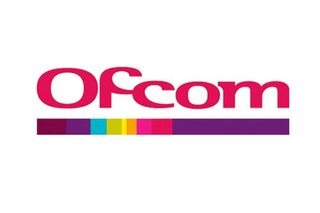Ofcom reveals controversial plans to tackle file-sharing
ISPs will be required to hand over to rights holders the details of anyone caught file-sharing three times in one year under the regulator's proposed Code of Practice.

Telecoms regulator Ofcom has unveiled a draft Code of Practice aimed at tackling internet piracy.
The Code of Practice requires ISPs to log the names of web users who have downloaded illegal content from the web, along with how many times they have done so.
The code is the result of Ofcom's efforts to meet the commitment to tackling web piracy set out in the Digital Economy Act passed by MPs in April. The initial framework was set out when the Act was passed, with the final regulations expected to come into force in early 2011.
Ofcom proposes a three-strike system that will require ISPs to store the details of internet users suspected of file-sharing and send them a letter of warning. Should three letters be sent out in a single year, the regulator wants ISPs to pass the user's details to rights holders. That could be the first step to legal action by the rights holder.
Ofcom claims the warning letters will contain "easy to understand information on the nature of the allegations made against the subscriber and on what actions a subscriber can take, both to challenge the allegation and to protect their network from being hijacked for the purposes of infringement".
However, consumer rights organisation, the Open Rights Group (ORG), has criticised the Code's "absurd lack of clarity" and accused Ofcom of leaving too many issues unresolved. "This is another extremely rushed process, forced by the Digital Economy Act's absurd timetables," the ORG's executive director Jim Killock said. "There are huge unanswered questions, not least whether innocent people will have to pay to appeal. Government needs to draw a clear line between the notifications and potential disconnection regimes. Otherwise, Ofcom can't tell people what these accusations mean, which is absurd."
The ORG has been working with the Communications Consumer Panel, Consumer Focus, Which? and Citizens Advice to come up with a set of principles it believes should govern any code of practice aimed at tackling illegal file-sharing. These principles include the requirement for sound evidence to be needed before any action can be taken, and set out clear protections for consumers' right to defend themselves.
Get the ITPro. daily newsletter
Receive our latest news, industry updates, featured resources and more. Sign up today to receive our FREE report on AI cyber crime & security - newly updated for 2024.
"It is imperative that a system that accuses people of illegal online activity is fair and clear," said Anna Bradley, chairman of the Communications Consumer Panel.
Ofcom has also been criticised for its decision to initially apply the Code only to fixed-line ISPs with more than 400,000 UK subscribers. That means just seven ISPs BT, TalkTalk, Virgin Media, Sky, Orange, O2 and the Post Office will have to conform to the regulations.
BT issued a statement criticising the move, saying it put larger ISPs at a disadvantage and that it would lead to file-sharers simply switching to smaller ISPs.
Ofcom is consulting on its Code of Practice proposals until 30 July.




